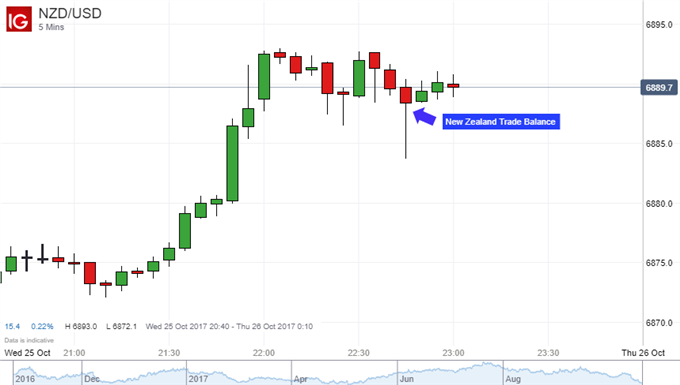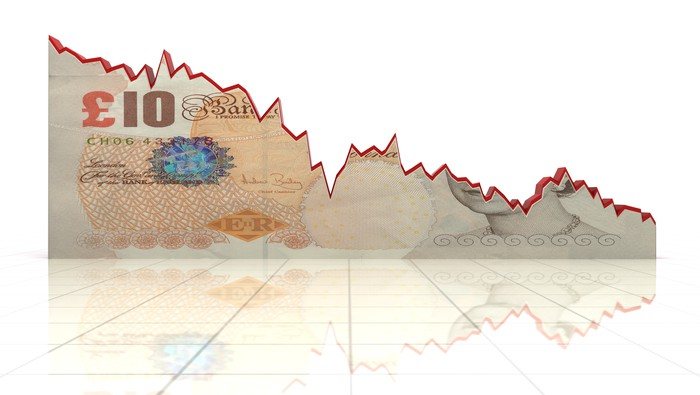Talking Points:
- The New Zealand Dollar recovered versus its peers in the aftermath of mostly sour trade data
- New Zealand’s trade deficit narrowed slower than expected while imports beat expectations
- Uncertainty over the new government’s promise to “review and reform” the RBNZ still apparent
Have a question about why the New Zealand Dollar did what it did? Join a Q&A webinar and ask it live!
The New Zealand Dollar recovered after falling against its major counterparts on September’s trade data. New Zealand’s monthly trade deficit shrank to –NZD1143m from –NZD1179m in August. However, this was wider than the –NZD900m projection.
The on-year reading also showed the deficit narrowing from –NZD3154m to –NZD2908. This was wider than the –NZD2706m estimate. Still, this was the least negative balance since July 2015.
Continuing with the misses, exports only rose NZD3.78b versus NZD3.90b expected. This was up from NZD3.68b prior which was a 1-year low. The only beat was that imports rose NZD4.92b versus 4.88b expected. This was the highest level since September 2014, a 3-year high.
The Kiwi Dollar initially fell on the trade balance miss probably because of the importance of exports in New Zealand. According to the World Bank, merchandise trade account for about 37.7% of New Zealand’s GDP. All else being equal, if imports rise faster than exports, it could potentially lower a country’s gross domestic product which in turn could affect how the central bank proceeds with monetary policy.
Speaking of the Reserve Bank of New Zealand, it has come into focus for the country’s newly formed government. Labour leader Jarcinda Ardern’s promise to “review and reform” the Reserve Bank Act may materially end up changing the central bank’s decision making process. This has in turn sapped the appeal of the New Zealand Dollar. With that in mind, perhaps this uncertainty made traders hesitant to over-commit on direction, especially given recent losses.








